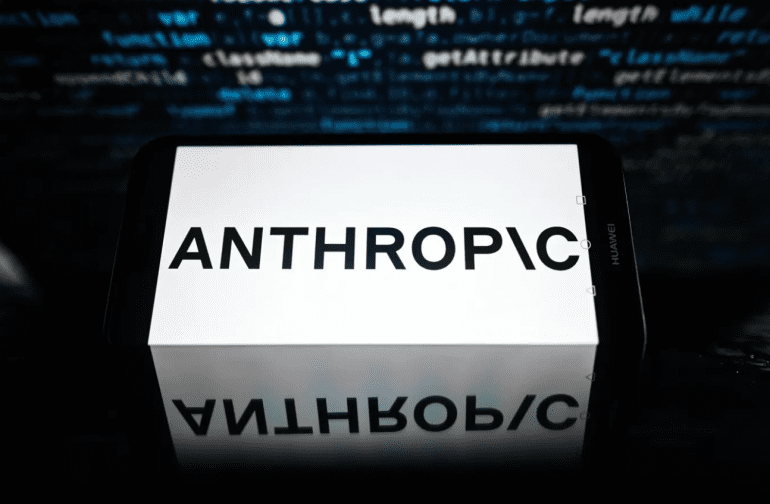- Anthropic adjusts policies to allow minors access to its AI within strict guidelines.
- Minors can use third-party apps powered by Anthropic’s AI models, with developers implementing safety features.
- Safety measures include age verification, content moderation, and educational resources on responsible AI use.
- Anthropic mandates compliance with child safety and data privacy regulations like COPPA.
- Developers must declare compliance status and face penalties for violations.
- This shift acknowledges AI’s potential benefits for younger users while ensuring safety and regulatory compliance.
Main AI News:
In a strategic move, Anthropic, the innovative AI startup, is revising its protocols to extend access to its generative AI systems to minors, under controlled circumstances. The recent announcement on the company’s official blog delineates that Anthropic will now permit teenagers and preteens to utilize third-party applications infused with its AI models, subject to stringent conditions. Developers integrating Anthropic’s technologies into their apps must incorporate specified safety features and transparently disclose the employment of Anthropic AI to their users.
Outlined in a comprehensive support article, Anthropic enumerates a series of safety protocols imperative for developers crafting AI-driven applications targeted at minors. These include the integration of age verification mechanisms, robust content moderation and filtering systems, as well as provision of educational materials emphasizing “safe and responsible” utilization of AI among youngsters. Moreover, Anthropic hints at the provision of “technical measures” geared towards customizing AI experiences for minors, such as a mandatory “child-safety system prompt” for developers catering to this demographic.
Furthermore, developers leveraging Anthropic’s AI models are mandated to adhere to relevant child safety and data privacy regulations, notably including the Children’s Online Privacy Protection Act (COPPA), which safeguards the online privacy of children under 13 in the United States. Anthropic underscores its commitment to periodic audits of applications for compliance, with stringent penalties for recurrent violators. Developers are also required to conspicuously declare their compliance status on public-facing platforms or documentation.
Anthropic’s policy revision reflects a recognition of the potential benefits AI tools offer younger demographics, particularly in realms such as educational support and tutoring. The updated policy affords organizations the flexibility to integrate Anthropic’s API into products tailored for minors, aligning with evolving trends where children and adolescents are increasingly turning to AI solutions for scholastic and personal assistance.
This strategic maneuver by Anthropic coincides with a broader industry trend, as youngsters increasingly seek out generative AI tools for diverse applications. Competitors such as Google and OpenAI are also exploring avenues to cater to younger audiences. Notably, OpenAI recently established a dedicated team focusing on child safety and forged a partnership with Common Sense Media to establish kid-friendly AI guidelines. Similarly, Google introduced its chatbot Bard, now rebranded as Gemini, catering to teenagers in select regions.
Statistics from the Center for Democracy and Technology reveal a significant uptake of generative AI among youths, with 29% leveraging AI tools for managing anxiety or mental health issues, 22% for navigating social challenges, and 16% for addressing familial conflicts. However, concerns persist regarding the misuse of generative AI, with instances of plagiarism and dissemination of misinformation prompting cautionary measures, including bans by educational institutions.
The growing chorus for regulatory frameworks and guidelines on the usage of generative AI among minors is gaining traction. UNESCO has called upon governments to enact regulations governing the integration of AI in education, advocating for age restrictions and robust safeguards to protect user privacy and data integrity. Audrey Azoulay, UNESCO’s director-general, emphasizes the dual nature of generative AI, presenting both opportunities for advancement and risks of harm, underscoring the imperative for proactive public engagement and regulatory intervention to navigate this technological frontier responsibly.
Conclusion:
Anthropic’s strategic shift to allow minors access to its AI technologies underscores a growing recognition of AI’s potential benefits for youth. By implementing stringent safety measures and compliance protocols, Anthropic aims to tap into the burgeoning market for AI-driven educational and support solutions tailored for younger demographics. This move not only expands Anthropic’s market reach but also sets a precedent for other AI vendors to prioritize safety and regulatory compliance in catering to younger users, shaping the future landscape of AI in education and personal assistance.

